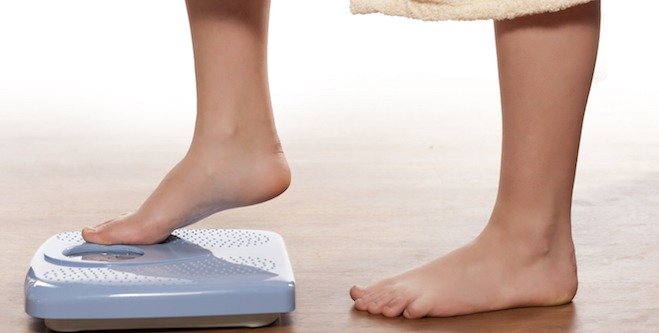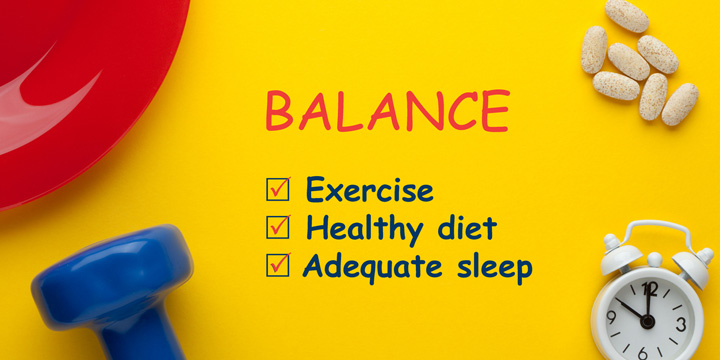
People with diabetes often face several barriers to weight loss, but with the right support and strategies, these challenges can be identified and overcome. This article will focus on some of these barriers including medication-related weight gain, fear of hypoglycemia, psychological factors such as diabetes distress or emotional eating, insulin resistance and limited physical activity.
Why is it important to manage your weight when living with type 2 diabetes?
Achieving a healthy weight has important benefits when living with type 2 diabetes. If diagnosed with prediabetes, reducing body weight at diagnosis by 5% can delay or prevent the development of type 2 diabetes. When living with type 2 diabetes, reducing your body weight can improve blood glucose (sugar) control and may reduce current or future diabetes medication needs. Furthermore, a weight loss of 10-15% for some individuals can put type 2 diabetes into remission.
Barrier #1: Insulin and other medications that promote weight gain
Diabetes medications are typically categorized as causing weight gain, weight loss or being weight neutral – meaning they do not cause weight loss or weight gain.
Although diabetes medications like insulin and insulin secretagogues are meant to improve blood sugar levels, they can also cause weight gain. Insulin is a hormone that helps move glucose from the blood stream to cells to be used for energy. If you eat or drink more carbohydrates than your body requires for energy, insulin will store the excess glucose as fat. Insulin secretagogues cause weight gain similarly to insulin; however, instead of injecting insulin these medications are signalling the pancreas to release more of its own insulin.
The good news is that there are more diabetes medications available that do not cause weight gain. Some medications are considered weight-neutral, while some newer classes of diabetes medications promote weight loss while improving glucose.
It is important to work with a healthcare provider experienced in treating type 2 diabetes who can help find a diabetes medication or a combination of diabetes medications that are right for you, while considering their impact on glucose, weight and other protective benefits.
Barrier #2: Hypoglycemia and fear of hypoglycemia
Experiencing hypoglycemia (low blood sugar) can be scary. People living with diabetes often have a fear of hypoglycemia. This can sometimes cause people to eat more in order to prevent hypoglycemia or they may overtreat hypoglycemia, both of which can contribute to weight gain.
Physical activity is one factor to achieving a healthy weight. However, as activity can lower blood sugars, some people may be reluctant to exercise due to fear of hypoglycemia.
Here are some considerations to prevent hypoglycemia:
Wearing a continuous glucose monitor (CGM) – CGMs have hypoglycemia alarms, which can be adjusted to notify you when glucose is nearing hypoglycemia. This may also reduce fear of hypoglycemia and decrease the need to eat extra carbohydrates to prevent hypoglycemia or help prevent overtreating hypoglycemia. These alarms may also make the addition of physical activity less stressful when concerned about hypoglycemia.
Adjusting diabetes medications — Certain medications, such as insulin or insulin secretagogues, increase your risk of hypoglycemia while exercising. Reducing current medication doses or switching to a different diabetes medication with less risk of hypoglycemia may be necessary to allow for the safe addition of physical activity. Please speak with your healthcare provider before adjusting your medications or insulin.
Barrier #3: Emotional eating and diabetes distress
Living with diabetes can feel like a full-time job. Both managing diabetes and fear of diabetes-related complications can lead to diabetes distress. Emotional eating is one way individuals may try to cope with stress, and this can sometimes lead to hyperglycemia (high blood sugars) and weight gain.
Individuals who cope with emotions through food may benefit from connecting with a diabetes education team member, a Registered Dietitian or a mental health counsellor to receive support and strategies for diabetes-related stress. A dietitian can help address emotional eating by encouraging mindfulness-based eating approaches, such as empowered or intuitive eating, while a counsellor may be able to suggest other ways to navigate emotional stress.
Barrier #4: Slow or plateaued weight loss
Insulin resistance is common in those with type 2 diabetes and those living with obesity. With insulin resistance, cells become less sensitive to insulin and the pancreas needs to secrete more insulin to bring hyperglycemia to target. This can cause excess glucose to be stored as fat, making losing weight even more difficult.
There are several ways to improve insulin resistance including the addition of some diabetes medications and/or incorporating regular physical activity. When considering lifestyle changes, such as the addition of physical activity, it is important to start with setting SMART goals (specific, measurable, achievable, realistic and time-bound) and gradually increase them. Having support is an important factor in being able to achieve your goals, whether that be from a friend or family member, or whether you consider seeking professional support from a healthcare provider (i.e., a dietitian) or a weight management program.
Barrier #5: Physical limitations or fatigue
Physical limitations, such as diabetic neuropathy (nerve damage) in the feet and hands due to hyperglycemia, may be a barrier to incorporating regular physical activity to help manage diabetes. Typical signs of neuropathy include numbness, tingling or pain in your feet.
Having chronic health conditions like osteoarthritis can impact your ability to be involved in physical activity. This can affect glucose control, insulin resistance and achieving a healthy weight. If you are living with pain, consider trying low-impact exercises, such as swimming, a stationary bike or chair exercises. These activities may be easier on your joints and feet. It is important to work with a professional to help you safely incorporate physical activity.
Getting a poor night’s sleep affects blood sugar control, your ability to handle physical and emotional stress, and your involvement in regular physical activity — all of which often impacts weight management. Sleep apnea is a condition where you repeatedly stop and start breathing while sleeping. Sleep apnea can lead to feeling fatigued. If you think you may suffer from sleep apnea, ask for a referral to a sleep specialist or a sleep study to get properly diagnosed and treated.
Conclusion
While barriers to achieving a healthy weight are common, having the right support and strategies can help you reach your SMART goals. Reaching a healthy weight through lifestyle changes alone may be difficult. You may benefit from the addition of diabetes medications that promote weight loss while improving blood sugar control and providing other benefits, such as kidney and/or cardiovascular protection. These medications may help by addressing cravings, achieving a feeling of fullness, helping limit portion sizes, improving insulin sensitivity, etc.
It is also important to work with a healthcare team who values your goals and can help create a plan that is right for you, addressing potential medication side effects and offering regular support. You may be able to find this locally with your family care provider or virtually. With virtual healthcare options being more widely available, you may want to consider a virtual healthcare team, such as Felix Health, who focuses on a variety of health concerns including weight management. Whether you choose your local healthcare provider or a virtual healthcare option, you want to ensure you have a team that is supportive and accessible to help you achieve your goals.
Sponsored by Felix Health, a partner who shares our mission of providing trusted health education.



